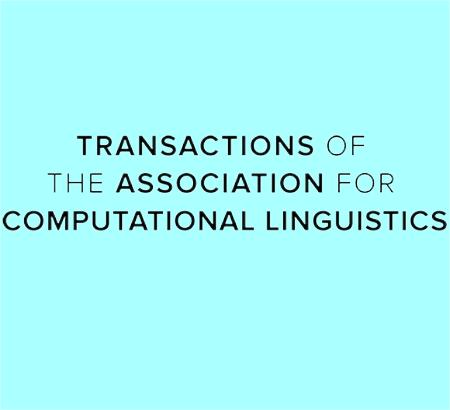Chinese Idiom Paraphrasing
IF 4.2
1区 计算机科学
Q2 COMPUTER SCIENCE, ARTIFICIAL INTELLIGENCE
Transactions of the Association for Computational Linguistics
Pub Date : 2022-04-15
DOI:10.1162/tacl_a_00572
引用次数: 2
Abstract
Abstract Idioms are a kind of idiomatic expression in Chinese, most of which consist of four Chinese characters. Due to the properties of non-compositionality and metaphorical meaning, Chinese idioms are hard to be understood by children and non-native speakers. This study proposes a novel task, denoted as Chinese Idiom Paraphrasing (CIP). CIP aims to rephrase idiom-containing sentences to non-idiomatic ones under the premise of preserving the original sentence’s meaning. Since the sentences without idioms are more easily handled by Chinese NLP systems, CIP can be used to pre-process Chinese datasets, thereby facilitating and improving the performance of Chinese NLP tasks, e.g., machine translation systems, Chinese idiom cloze, and Chinese idiom embeddings. In this study, we can treat the CIP task as a special paraphrase generation task. To circumvent difficulties in acquiring annotations, we first establish a large-scale CIP dataset based on human and machine collaboration, which consists of 115,529 sentence pairs. In addition to three sequence-to-sequence methods as the baselines, we further propose a novel infill-based approach based on text infilling. The results show that the proposed method has better performance than the baselines based on the established CIP dataset.汉语习语释义
摘要习语是汉语中的一种习语,大部分由四个汉字组成。汉语习语具有非复合性和隐喻性的特点,很难被非母语儿童所理解。本研究提出了一个新的任务,称为汉语习语释义(CIP)。CIP的目的是在保留原句含义的前提下,将含有习语的句子改写为非习语的句子。由于汉语NLP系统更容易处理没有成语的句子,CIP可以用于预处理汉语数据集,从而促进和提高汉语NLP任务的性能,例如机器翻译系统、汉语成语完形填空和汉语成语嵌入。在本研究中,我们可以将CIP任务视为一个特殊的转述生成任务。为了避免获取注释的困难,我们首先建立了一个基于人机协作的大规模CIP数据集,该数据集由115529个句子对组成。除了三种序列到序列的方法作为基线外,我们还提出了一种基于文本填充的新的基于填充的方法。结果表明,与基于建立的CIP数据集的基线相比,该方法具有更好的性能。
本文章由计算机程序翻译,如有差异,请以英文原文为准。
求助全文
约1分钟内获得全文
求助全文
来源期刊
CiteScore
32.60
自引率
4.60%
发文量
58
审稿时长
8 weeks
期刊介绍:
The highly regarded quarterly journal Computational Linguistics has a companion journal called Transactions of the Association for Computational Linguistics. This open access journal publishes articles in all areas of natural language processing and is an important resource for academic and industry computational linguists, natural language processing experts, artificial intelligence and machine learning investigators, cognitive scientists, speech specialists, as well as linguists and philosophers. The journal disseminates work of vital relevance to these professionals on an annual basis.

 求助内容:
求助内容: 应助结果提醒方式:
应助结果提醒方式:


